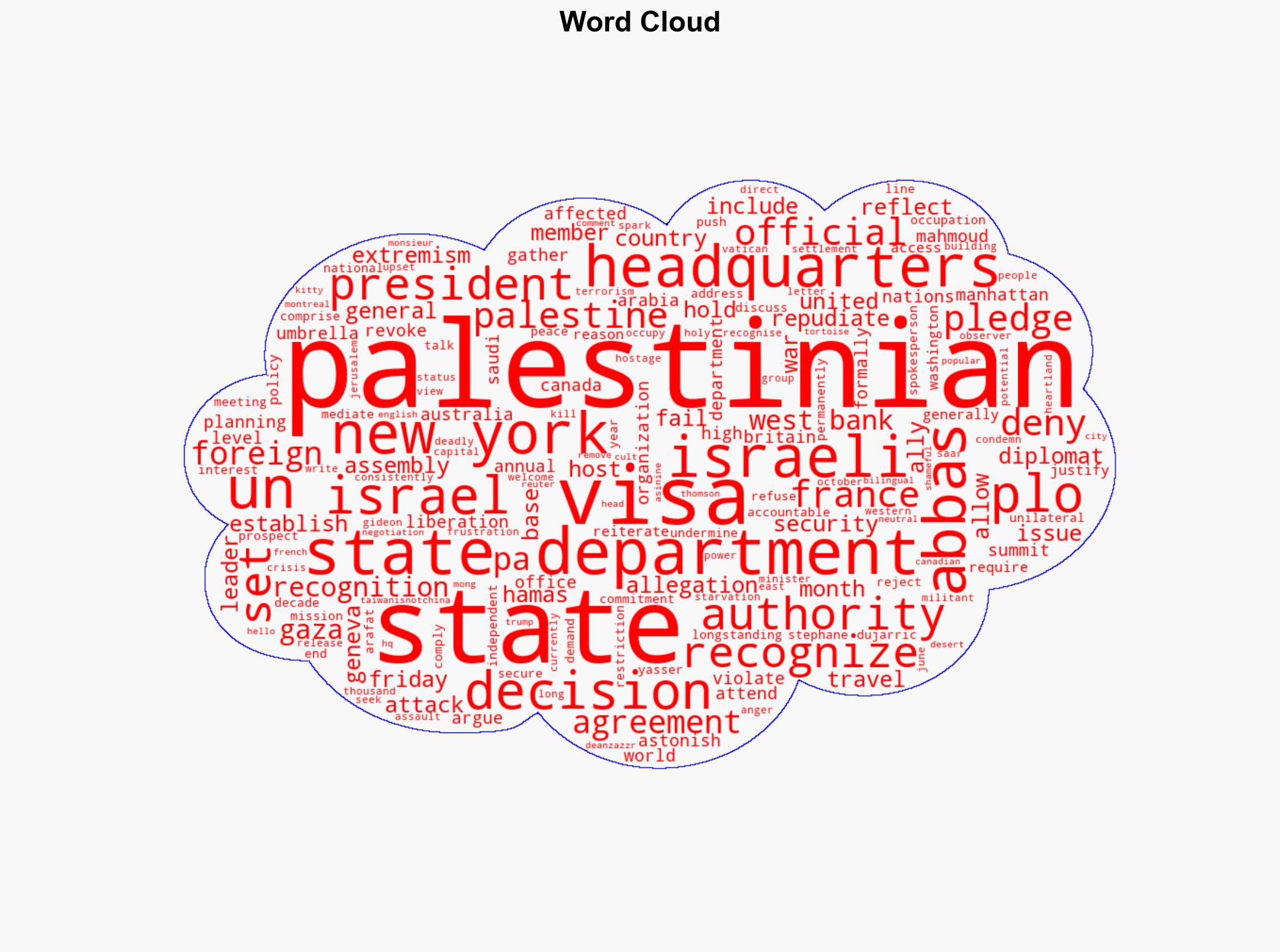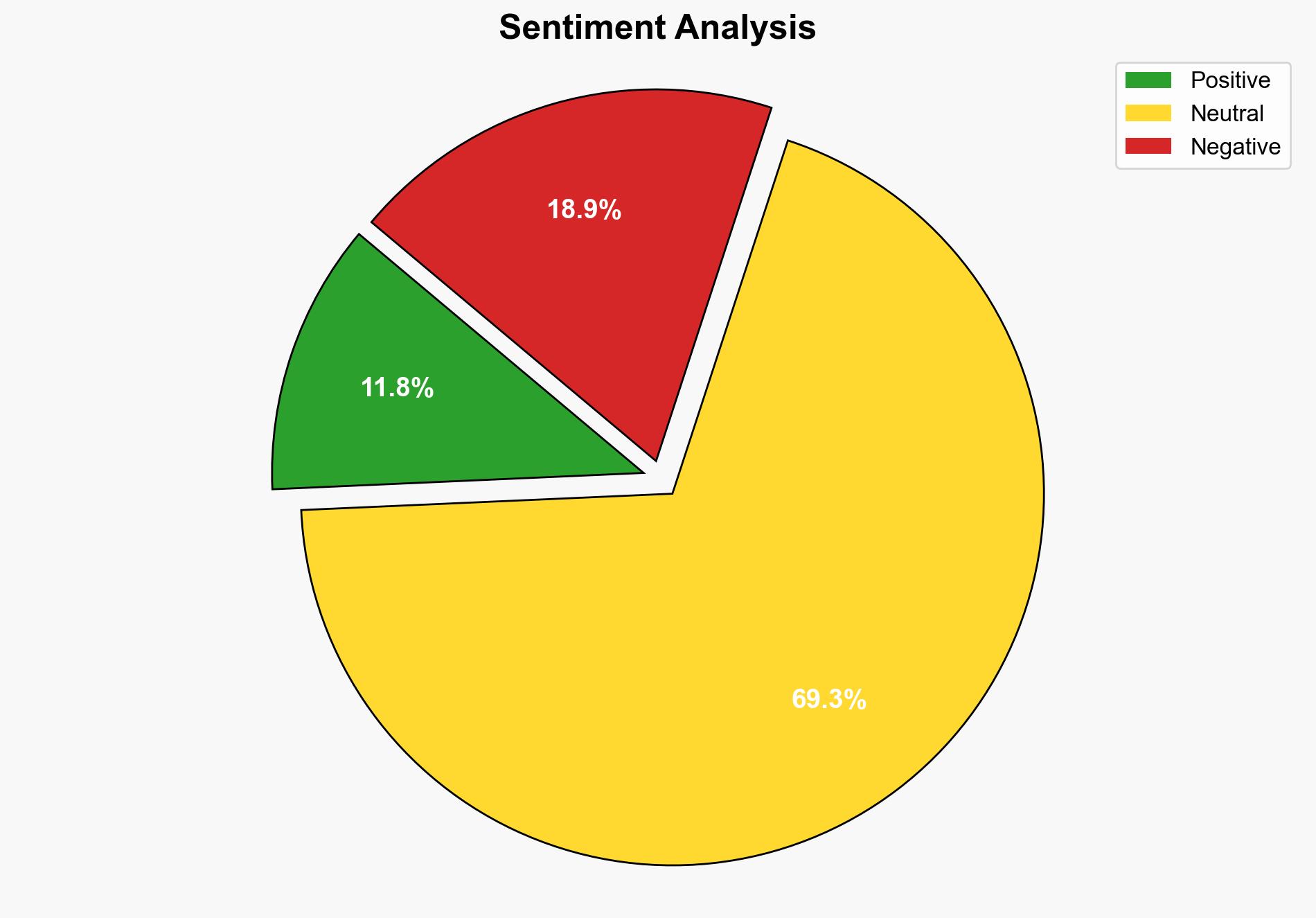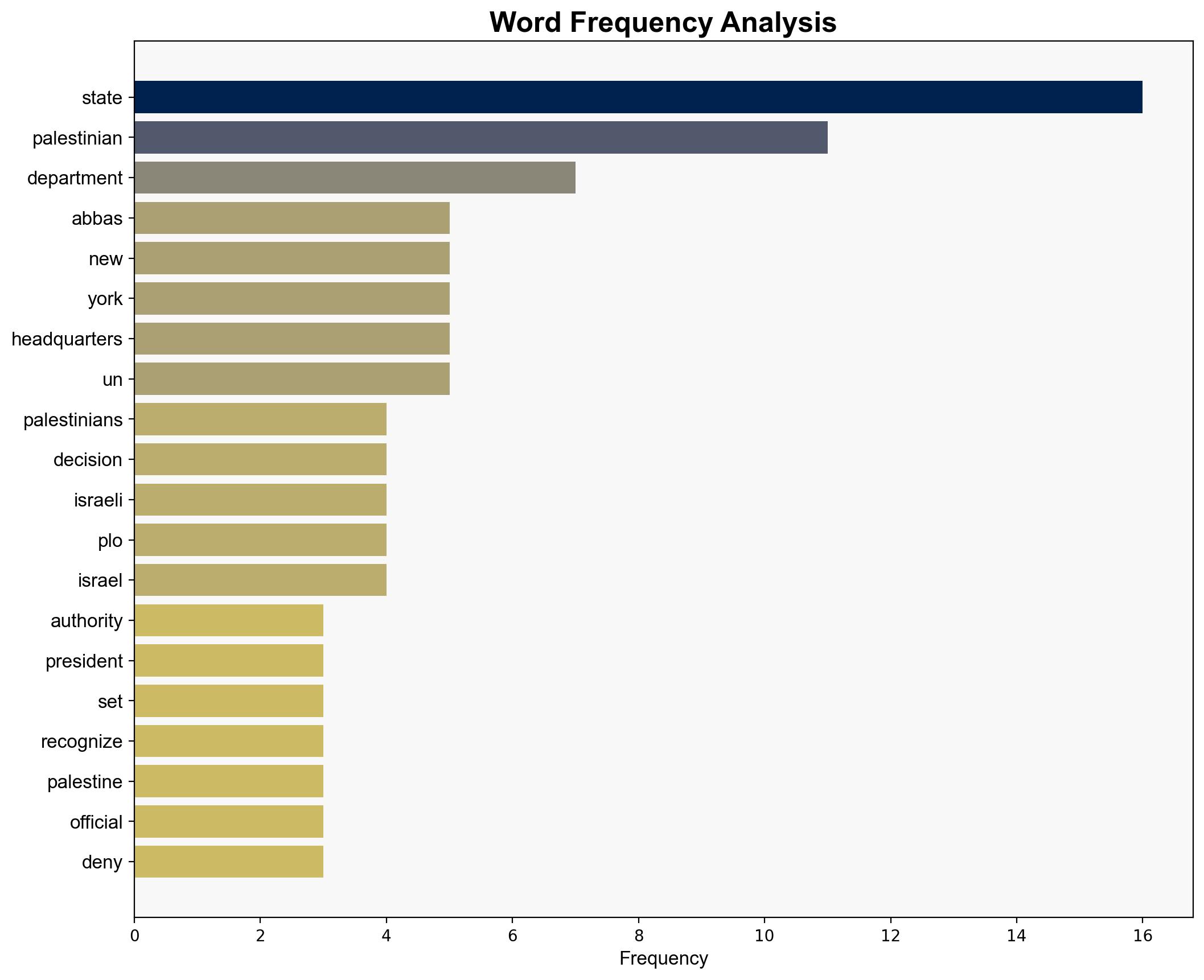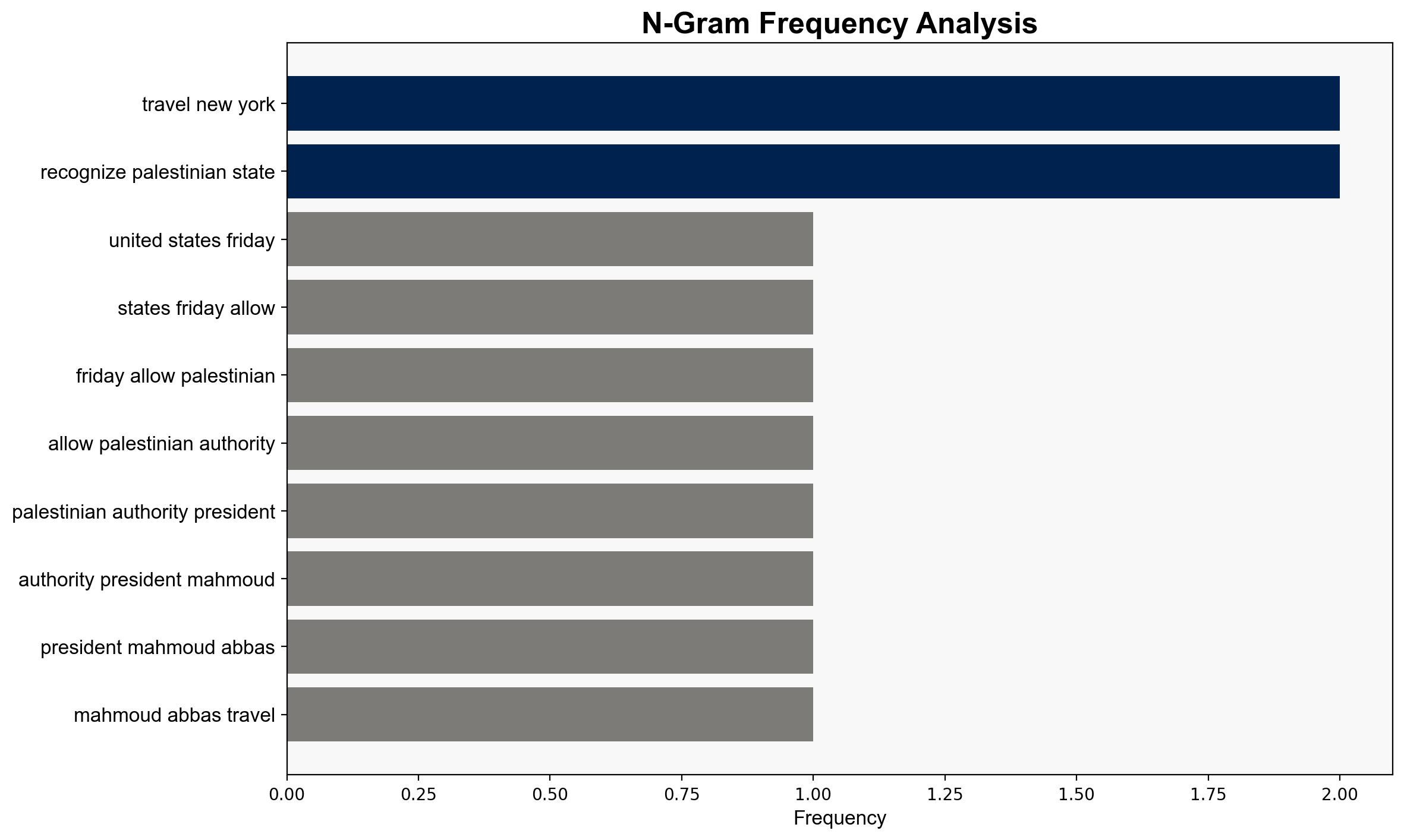US bars Palestinian leader Abbas from UN as allies pledge statehood – Japan Today
Published on: 2025-08-30
Intelligence Report: US bars Palestinian leader Abbas from UN as allies pledge statehood – Japan Today
1. BLUF (Bottom Line Up Front)
The United States’ decision to bar Mahmoud Abbas from attending the UN General Assembly, amidst allies pledging to recognize Palestinian statehood, is likely a strategic maneuver to pressure the Palestinian Authority (PA) and the Palestine Liberation Organization (PLO) to repudiate extremism more forcefully. The most supported hypothesis suggests that the US aims to align with Israeli security concerns while managing international diplomatic fallout. Confidence in this assessment is moderate, given the complex geopolitical dynamics and the potential for misinterpretation of US intentions. Recommended action includes diplomatic engagement to clarify US objectives and mitigate potential backlash from allies.
2. Competing Hypotheses
1. **Hypothesis A**: The US decision is primarily driven by security concerns and a desire to pressure the PA and PLO to take a stronger stance against extremism, aligning with Israeli interests.
2. **Hypothesis B**: The US action is a diplomatic signal to maintain leverage over the peace process, ensuring that any recognition of Palestinian statehood aligns with broader US and Israeli strategic goals.
Using ACH 2.0, Hypothesis A is better supported by the State Department’s justification citing security and extremism concerns. Hypothesis B, while plausible, lacks direct evidence of strategic alignment beyond security rhetoric.
3. Key Assumptions and Red Flags
– **Assumptions**: Both hypotheses assume that the US decision is strategically calculated rather than reactionary. Hypothesis A assumes a direct correlation between visa denial and security concerns.
– **Red Flags**: Lack of explicit US statements on long-term diplomatic strategy raises questions about potential hidden agendas. The absence of clear communication with allies could indicate misalignment or internal policy discord.
4. Implications and Strategic Risks
– **Geopolitical**: The decision may strain US relations with allies pledging recognition of Palestinian statehood, potentially isolating the US in future diplomatic negotiations.
– **Security**: Increased tensions could exacerbate regional instability, potentially leading to escalated violence or diplomatic standoffs.
– **Economic**: Potential sanctions or economic measures by allies in response to perceived US unilateralism could impact international trade relations.
5. Recommendations and Outlook
- Engage in diplomatic dialogue with allies to clarify US intentions and prevent misinterpretation of actions.
- Encourage multilateral discussions to address security concerns while supporting a balanced approach to Palestinian statehood recognition.
- Scenario Projections:
- Best: Successful diplomatic engagement leads to a unified approach to Middle East peace.
- Worst: Diplomatic fallout results in increased regional instability and weakened US influence.
- Most Likely: Continued diplomatic tension with incremental progress on security and statehood discussions.
6. Key Individuals and Entities
– Mahmoud Abbas
– Gideon Saar
– Stephane Dujarric
– State Department Officials
7. Thematic Tags
national security threats, geopolitical strategy, diplomatic relations, Middle East peace process





